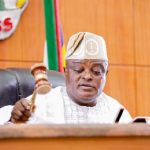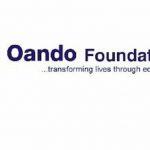World
Russia Still Reviewing Visa-Free Regime For Africa
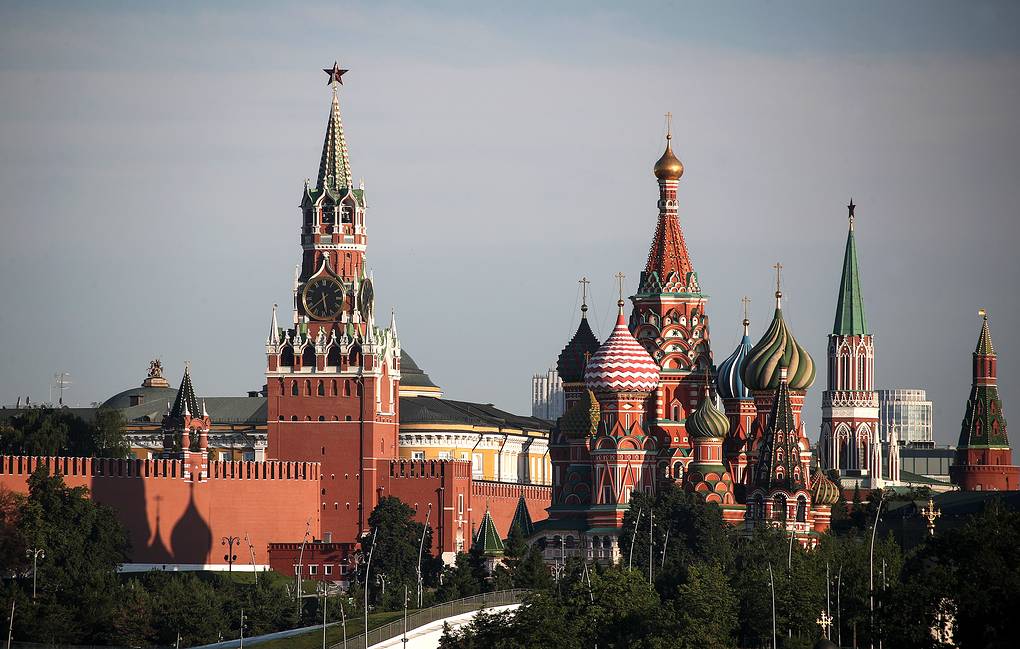
By Kestér Kenn Klomegâh
Russian Foreign Ministry has clarified that the visa-free regime for African countries is still under serious review, diplomatic talks with different countries on the drafts of visa-free travel agreements undergoing different stages as each of them has its specifics.
On 2nd October 2024, Russian Foreign Ministry’s Consular Department Head Alexey Klimov said in an interview with local Russian media: “Russia is currently working out travel agreements on abolishing visa requirements and providing visa-free entry for short-term trips, usually up to 90 days, with a number of friendly states, nine of them being the countries of Africa and the Middle East.”
“As always, we will immediately inform the public about the concrete results achieved and embodied in documented bilateral agreements,” Klimov concluded, the full transcript posted on the official ministry’s website.
With the changing times, Russia has been pursuing integrative multipolar relations with friendly countries around the world, including those in Africa. However, Russia is still not a popular holiday destination for Africa’s political elite, corporate business leaders, and middle class. Politicians and corporate business leaders highly prefer to spend their vacation in the United States and Europe, some Asian destinations are increasingly becoming their preferential choice. That trend is unlikely to change, it will remain as such for the next decades.
After the first symbolic Russia-Africa summit in the Black Sea city of Sochi in October 2019, both Russia and Africa adopted a joint declaration – in fact, a comprehensive document which outlines various parameters for uplifting cooperation into a new qualitative stage.
In order to boost effective economic interests and foster cooperation, frequent interactions are necessary. The frequency of interaction should not only be established during summits and conferences but some basic strategic steps and measures are necessary to encourage simple holiday travels to both regions. These are significantly missing in the current relations between Russia and Africa. Critics often say Russia is contributing enormously to its so-termed isolation, by closing its doors especially when there are huge opportunities to develop first-class tourism.
Certainly, playing flexible visa regimes will not only promote tourism and further strengthen cultural ties but it will, in practical terms, neutralise the high level of Western media disinformation across the continent. There is a need to take a pragmatic approach to these questions. This is the most important aspect of leveraging relations.
With the current geopolitical situation, Africa’s middle class estimated at 380 million still has other suitable alternative holiday destinations. Moscow and St. Petersburg are not their desired priority for spending vacations. Russian tour operators acknowledge that there is nothing such as African tourism in Russia. On the opposite side, Morocco, Egypt, Seychelles, South Africa and Zanzibar are the few African destinations popular among Russian vacationers.
The second Summit Declaration on 28 July 2023 in Saint Petersburg, underlined building on the historical and time-tested friendly ties between the Russian Federation and African States. Noticeably, Russian officials only dream of official state visits by heads of African states and ministers as an essential pillar of their version of a multipolar world.
Most often, Russia and Africa have been discussing how best to promote exchanges of delegations, explore untapped resources, the possibilities of promoting cooperation in the field of tourism, and disseminate information on tourism opportunities of the Russian Federation and African States.
For these past few years since Sochi, the first declaration remains tacitly as a declaration. In practical terms, the visa-free regime for African countries has remained largely as official documents stacked in computerized files and would later be pushed into electronic historical archives.
The basic question often asked is for what purposes are the summit declarations? “Russia is ready to build multifaceted relations with Africa. If Russia Wins, Africa Wins!” remarked the Chairman of the African Union, Comoros President Azali Assoumani during the late July St. Petersburg summit.
After the first Russia-Africa summit held in Sochi (2019), and within the framework of the joint declaration that was adopted, the Ministry of Foreign Affairs of the Russian Federation created a Secretariat of the Russia-Africa Partnership Forum.
With hopes for comprehensive and enduring collaboration on long-term programs, the Secretariat of the Russia-Africa Partnership Forum has since then been networking for potential Russian, African and international organisations to promote Russia’s economic interests in Africa and foster mutually beneficial cooperation with African countries.
Early September 2023, local Russian media was abuzz with the latest information emerging from the Russian Ministry of Foreign Affairs that Russia plans a ‘visa-free regime’ with all African countries, referring to the fact that it was within the framework of Russia and Africa’s Action Plan (2023-2026) adopted at the second summit in St. Petersburg.
Our investigations and research indicate that Russia has visa-free agreements with only six African countries. And visa-free regime only applied to African countries that signed agreements with the Foreign Ministry. Within the agreements, only holders of diplomatic passports are permitted under this consular agreement. Moreover, the point of developing or facilitating work, easing contacts with African countries, between ordinary citizens of Russia and Africa still needs visas to travel both ways.
According to sources monitored, agreements have to be signed after successful negotiations with Russian authorities. One source confirmed in an interview with me that Russia has an agreement on visa-free travel for holders of diplomatic service passports with 32 countries on the continent, and yet refused to make public and to the media the official list of approved African countries.
Russian President Vladimir Putin and the African leaders adopted the final declaration of the second Russia-Africa summit. An action plan of the Russia-Africa Partnership Forum for the period 2023-2026 and a number of other documents were also adopted. In addition, some agreements, contracts and other documents related to various areas of cooperation between Russia and Africa were approved on the sidelines of the forum and the summit.
“We highly appreciate the results of the joint work at the summit. I am confident that the results achieved will form a good basis for further deepening the Russian-African partnership in the interests of prosperity and well-being of our peoples,” Putin said in a speech posted to the official Kremlin website. Putin was pleased with the results of the summit, which was held in a “constructive and very friendly atmosphere.” Russia and Africa confirmed their position on the formation of a multipolar world order.
According to the stipulated rules and regulations, the Russia-Africa summit will be held every three years. In the period between the Russia-Africa summits, the mechanism of dialogue partnership will operate, and regular political consultations will continue through the Ministries of Foreign Affairs of Russia, African States and the leadership of the African Union Commission.
World
Irvine, Dreaminfluence Accelerate Growth of Africa’s $3bn Creator Economy
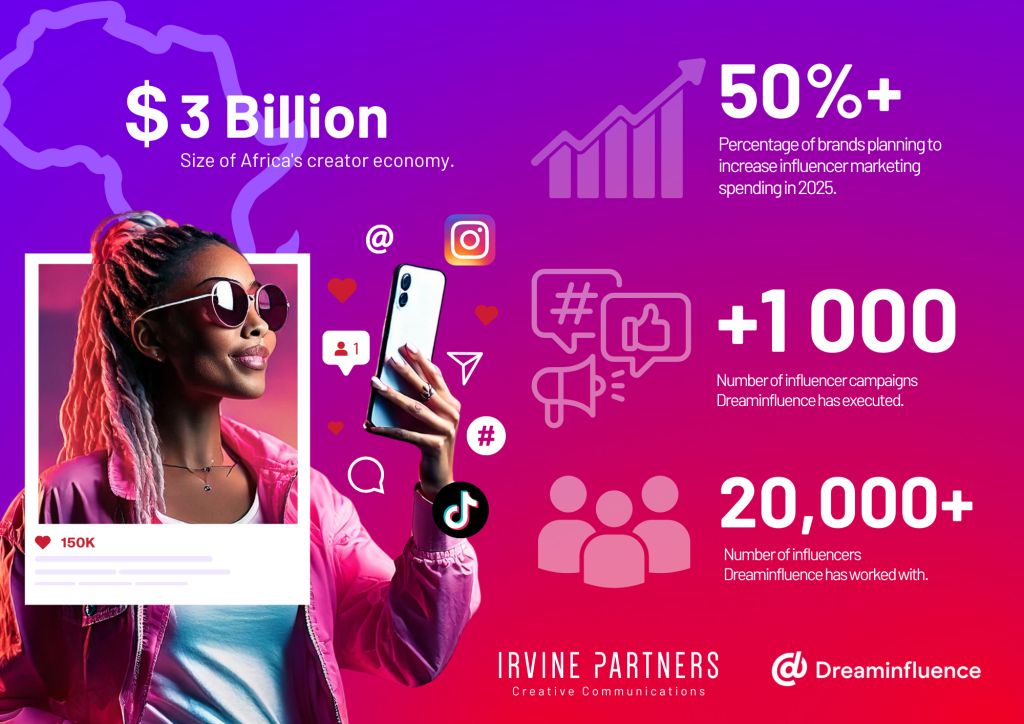
Irvine Partners, a leading creative communications agency with offices in Africa and Europe, has signed an exclusive licence with Dreaminfluence as their Africa partner. Dreaminfluence, an all-in-one platform that empowers brands to build and scale influencer marketing has executed 1,000s of influencer campaigns and worked with over 20,000 influencers.
This innovative platform’s digital capabilities will support the content creators who are driving Africa’s rapidly expanding $3.08 billion creator economy. Despite creators on the continent taking advantage of platforms like TikTok, African creators still earn significantly less than their counterparts in other regions, despite producing high-quality content. Furthermore, infrastructure limitations and a digital skills gap hinder the progress of the creator ecosystem.
Monetization should not be out of reach for African creators says Rachel Irvine, CEO of Irvine Partners. She adds that “Dreaminfluence provides digital infrastructure and connects creators to brands, backing their work so they too can unlock opportunities while brands can grow their reach with authentic content that resonates with audiences.”
Dreaminfluence CEO, Mads Wedderkopp, explains “We have worked with many leading brands in the Nordics and are excited to finally bring our platform to Africa through this exclusive partnership with Irvine Partners.”
“The decision to work with Irvine Partners as our Africa partner was a no-brainer, given the roster of clients they serve, and their continental and European footprint.”
Some of the leading brands that use Dreaminfluence for their influencer campaigns are Nivea, L’Occitane, and Estee Lauder Group.
How it works
Dreaminfluence was founded in 2018, to transform influencer marketing from being about affiliate links and discount codes to focusing on actual brand ambassadorship. This vision is translated into the features that Dreaminfluence offers, for both brands and influencers.
These brand features include:
-
Discovery of influencers: Brands can find the right influencers for their campaigns, without wasting time on influencer outreach
-
Campaign analytics: Track campaign performance, report the value and identify the best-performing influencers
-
Building relationships: Influencers move from short-term brand campaigns to long-term brand ambassadorship
-
Campaign management: Manage influencer payments, product shipping and secure content usage rights
-
Paying multiple influencers at a time with one click
For influencers, the features are:
-
Apply to join a brand team or campaign through the app
-
Be selected as part of the ambassador team
-
Join new campaigns when they are published
-
Run all campaign admin including payments, content ideas, and approvals through the app
The Dreaminfluence difference
Irvine Partners is constantly working with influencers across Africa on different campaigns for its clients and Dreaminfluence provides an innovative way to streamline agency relations with leading and emerging content creators on the continent.
Mohale Moloi, Content Director at Irvine Partners explains that “creator marketing studies tell us that more than 50% of brands plan to increase their spending on influencer marketing in 2025. But making sure these campaigns deliver results across the whole marketing funnel requires an in-depth understanding of market nuances, which is what we bring to the table.”
By working with a dynamic platform like Dreaminfluence, Irvine Partners will take influencer campaigns to the next level by combining local insights with a platform that makes everything from campaign selection to payments more efficient.
“We are most excited about the actionable campaign data and high ROI that Dreaminfluence offers,” says Moloi.
World
Cameroonian Diaspora Congress: An Essential Vector for Cameroon’s Influence in Russia
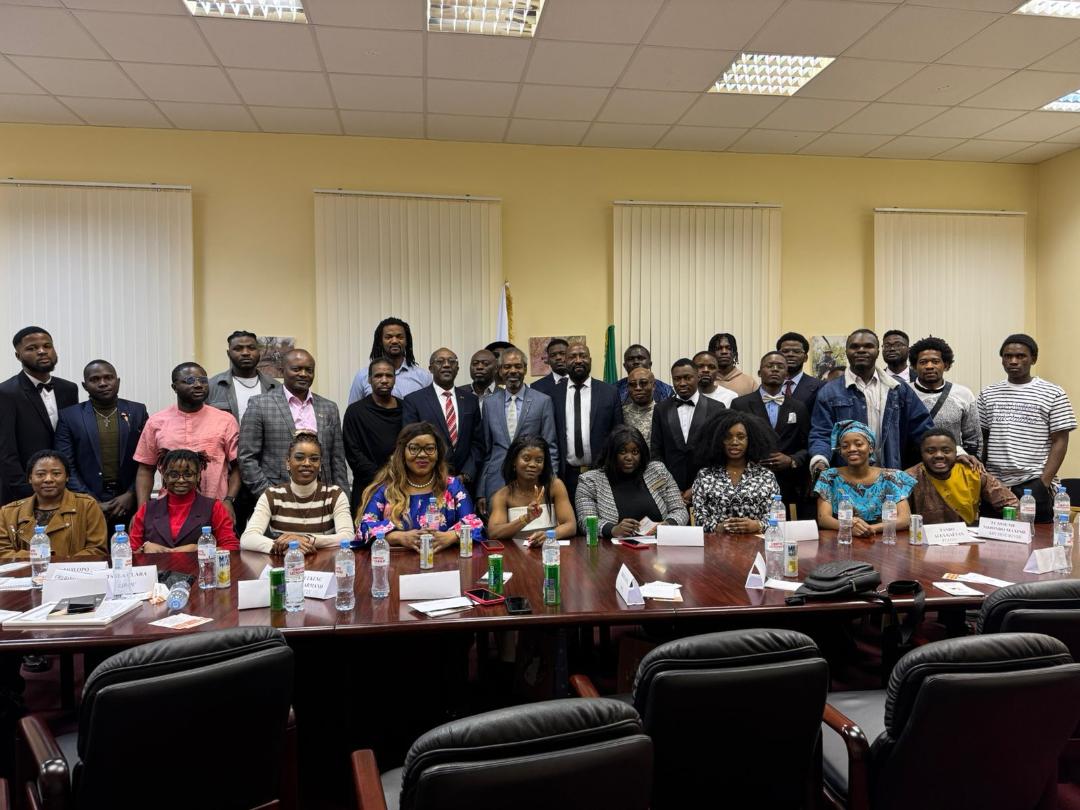
By Louis Gouend
The Cameroonian diaspora in the Russian Federation, although relatively recent, constitutes an essential vector for Cameroon’s influence and the maintenance of strong ties with the nation. In this perspective, and following a fruitful video conference on January 27, 2024, with the Minister of Youth and Civic Education, it was decided to organize, on February 8 and 11, 2025, the first celebration of Youth Day within the Russian diaspora.
This unprecedented initiative, benefiting from the Minister’s valuable support, aimed to consolidate patriotism and the spirit of initiative among Cameroonian youth residing in Russia, by offering a framework for exchange and promotion of Cameroonian cultural wealth. It mobilized Cameroonian students, young professionals, and entrepreneurs established in Russian territory.
The commemoration of the 59th anniversary of Cameroon’s Youth Day took the form of a dual celebration: a physical meeting at the Cameroonian Embassy in Moscow on February 8, 2025, and a virtual meeting on Zoom on February 11, 2025. These events brought together a total of more than 150 participants from over 50 cities in Russia, representing diverse backgrounds, including presidents of Cameroonian associations, members of the Diaspocam executive council, deans, honorary guests, and embassy officials.
The diaspora had the honour of welcoming, via video conference, Mr Mounouna Foutsou, Minister of Youth and Civic Education, whose encouragement and vision were a source of inspiration. The Minister outlined the productive initiatives implemented by the Cameroonian government in favour of its youth in the diaspora in Russia, emphasizing the willingness to support projects led by young entrepreneurs through a specific support mechanism and the operationalization of the guarantee fund.
During his address, the Minister recalled the commitments made during the video conference of January 27, 2024, emphasizing the need for increased collaboration between the government and the youth of the diaspora. He stressed the immense potential represented by this youth and reaffirmed the government’s commitment to addressing their concerns.
Among the initiatives put in place to support the youth of the diaspora, he mentioned:
- The Guarantee Fund for Young Entrepreneurs (FOGAJEUNE), which finances projects in four key sectors (agriculture, digital economy, industry/crafts and technological innovation).
- The special DIALYJ window, designed to promote co-ventures between young people from Cameroon and the diaspora.
- The Program to Aid the Return and Integration of Young People from the Diaspora (PARIJEDI), which facilitates the return and integration of young people in Cameroon.
“We express our deep gratitude to the Cameroonian government and personally to Minister Mounouna Foutsou for their support of our initiative,” said the President of Diaspocam, Louis Gouend. “Thanks to their assistance and the support of the Cameroonian Embassy in Russia, we were able to organize this important event, which has strengthened ties between the diaspora and Cameroon.”
Aware of the positive impact of this first celebration, we hope that this innovative initiative will be included in the calendar of activities of the Ministry of Youth and Civic Education for the years to come.
Diaspocam establishes a legal platform to come together, helps each other, interacts and establishes viable strategic networks and partnerships; presents, shares and expands proven diaspora business models; promotes and assists businesses and investments in Cameroon.
It strengthens a good image of Cameroon in Russia while maintaining close liaison with the Cameroonian and Russian governments and any other representative body pursuing objectives similar to those of the Association. Cameroonian Diaspora in the Russian Federation is a public organization which encourages participation, representation, diversity and cooperation between Cameroon, African diaspora and Russian society.
World
African Union Launches Credit Rating Agency to Rival Fitch, Others
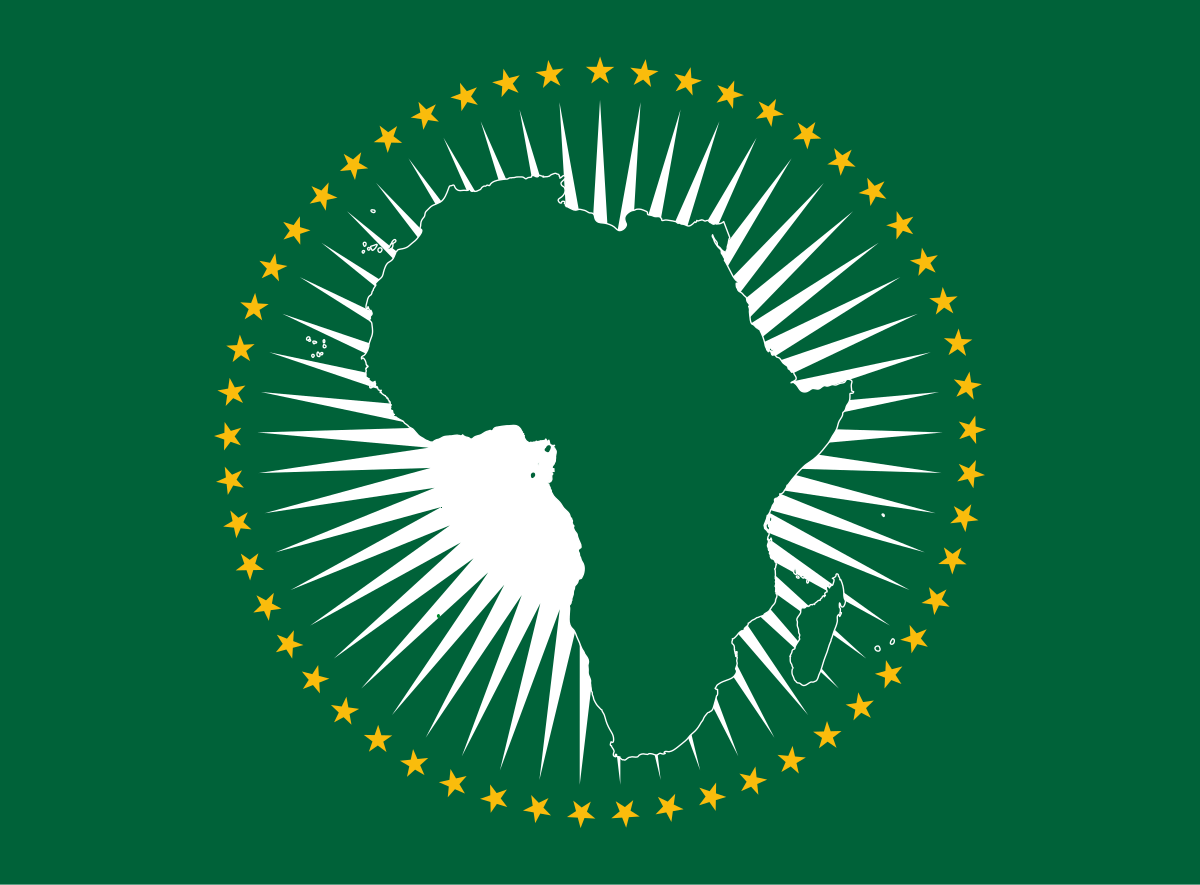
By Adedapo Adesanya
The African Union has announced the launch of its rating agency, the African Credit Rating Agency (AfCRA) to provide accurate ratings for countries on the continent.
According to Kenya’s President, Mr William Ruto, while unveiling the new agency at an AU event held in Addis Ababa, Ethiopia on Friday, AfCRA will address biases by global rating firms.
Global firms like Moody’s, Fitch and Standard & Poor (S&P) are some of the ratings agency which provide insights into African countries to aid investors and stakeholders.
There have been criticisms that these ratings lead to higher borrowing costs for African countries and make it harder for them to access international financial markets.
“Global credit rating agencies have not only dealt us a bad hand, they have also deliberately failed Africa,” Mr Ruto stated during the launch.
“They rely on flawed models, outdated assumptions, and systemic bias, painting an unfair picture of our economies and leading to distorted ratings, exaggerated risks, and unjustifiably high borrowing costs.”
According to President Ruto, improving Africa’s rating by one notch could unlock $15.5 billion in additional funding for the continent, which could help replace a significant portion of official development assistance or be invested in Africa’s infrastructure needs.
Despite Africa’s abundant natural wealth, only two African nations are currently ranked as investment grade.
“It is time for Africa to use the right scale, one that reflects its true weight,” Mr Ruto added.
The African Union has previously criticized global rating agencies’ characterization of African economies. In January, the AU pointed out that Moody’s Ratings’ fluctuating assessment of Kenya’s outlook was flawed.
“As the continent continues its march towards economic integration and resilience, the establishment of the African Credit Rating Agency (AfCRA) represents a pivotal step in asserting Africa’s position on global financial governance.”
The agency aims to provide fair, transparent, and development-focused credit ratings that reflect the realities and potential of African economies.
The idea comes more than a year since the AU officially announced its plans to move forward with the project since September 2023.
The push for an African credit rating agency became viable in 2022 when Senegal’s former president Macky Sall, then the chairman of the AU, called for a new system to “end the injustices” faced by African countries.
-

 Feature/OPED5 years ago
Feature/OPED5 years agoDavos was Different this year
-
Travel/Tourism9 years ago
Lagos Seals Western Lodge Hotel In Ikorodu
-

 Showbiz2 years ago
Showbiz2 years agoEstranged Lover Releases Videos of Empress Njamah Bathing
-

 Banking7 years ago
Banking7 years agoSort Codes of GTBank Branches in Nigeria
-

 Economy2 years ago
Economy2 years agoSubsidy Removal: CNG at N130 Per Litre Cheaper Than Petrol—IPMAN
-

 Banking2 years ago
Banking2 years agoFirst Bank Announces Planned Downtime
-

 Sports2 years ago
Sports2 years agoHighest Paid Nigerian Footballer – How Much Do Nigerian Footballers Earn
-

 Technology4 years ago
Technology4 years agoHow To Link Your MTN, Airtel, Glo, 9mobile Lines to NIN






